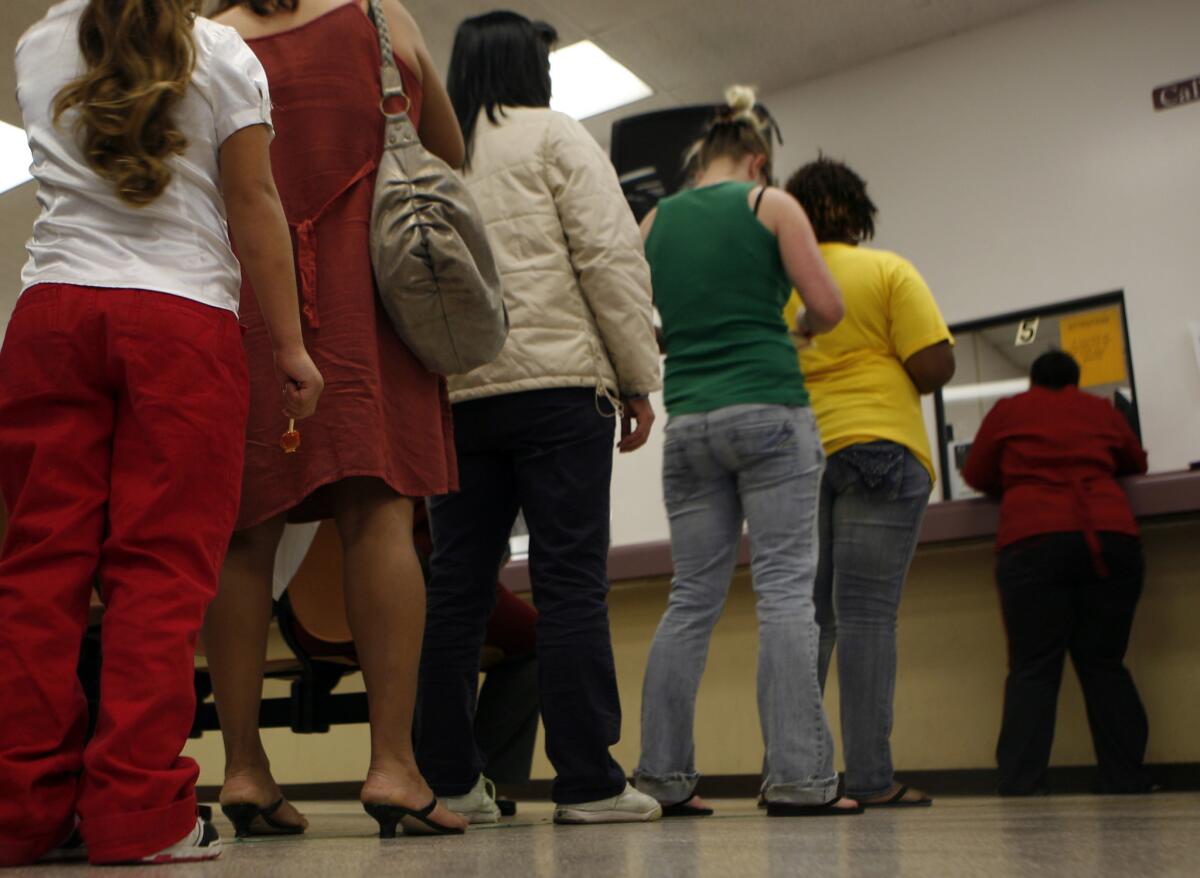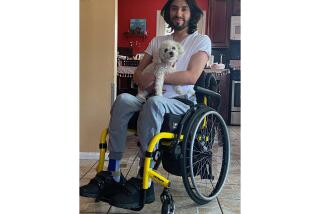L.A. County settles suit over cutoffs of thousands from welfare rolls

Anthony Wardlaw was fresh out of foster care three years ago when he went on general relief, Los Angeles County’s $221-a-month welfare program for the destitute.
When he tried to use the money to buy his mother a hamburger, his government debit card didn’t work. And he had no idea why.
According to a $7.9-million settlement agreement announced Tuesday, Wardlaw was one of thousands of people who were knocked off the welfare rolls without proper notice when applications swelled during the Great Recession.
Under the settlement, the county will stop cutting off general relief recipients for petty or unintentional violations of welfare-to-work rules, according to court documents. At an annual cost to the county of $5.3 million, it also will stop reducing grants if people decide to share housing.
“This was going on in numbers that were unprecedented,” said Daniel Grunfeld of the law firm Morgan, Lewis & Bockius.
The county began negotiating with the legal team — which also included Public Counsel, the Inner City Law Center and retired UCLA law professor Gary Blasi — in December 2012 after it threatened to sue.
The class-action lawsuit, filed Tuesday, alleges violations of the state welfare code and recipients’ due process rights. The settlement agreement, which covers the next four years, will be entered this week for approval by Los Angeles Superior Court Judge William F. Highberger.
“We feel that we have arrived at a process that conforms to state requirements and improves our service,” county spokesman David Sommers said in an email. In reaching the settlement, the county did not admit liability, Sommers added.
In perhaps the most significant reform, the county is modernizing how it lets homeless people, who make up 60% of the people on general relief, know about regulations, deadlines and penalties.
The county Department of Public Social Services, the plaintiffs’ class-action lawsuit said, had essentially been notifying itself, first by mail and then electronically, of welfare cutoffs to homeless people.
With welfare numbers up 80%, from 59,000 in 2007 to 106,000 three years later, general relief recipients were told to drop by the welfare office randomly to see if they had notices. Wardlaw said this was often an all-day affair.
“Things were hard enough already,” said Wardlaw, 21, who said he was never notified about losing his benefit after he missed one appointment — caused by a late bus. He ended up sleeping under a tree in South Los Angeles with his mother.
He said he awoke to find someone had stolen the cover off him as he slept.
“It was dangerous. All of Los Angeles is dangerous,” he added.
Aleah Guillory missed a welfare-to-work class and was banned from applying again for a month, which violated a state-mandated grace period, the suit said. She moved back to the streets and panhandled by the freeways.
Guillory reapplied a month later and was told to repeat the orientation class. But the notice of her appointment time arrived after the class was over. Her address, a homeless youth shelter in Hollywood, had spotty mail delivery. She was cut off again, this time for six months, the suit said.
The county now will post notices on its website and telephone and text or email homeless participants about appointments or proposed penalties. Under the settlement terms, it also will quit having recipients’ appeals heard by the same person who issued the sanctions.
An estimated 134,000 improper penalties were imposed on general relief recipients, the proposed settlement document said. More than 106,000 recipients will receive payments of $21 to $171 as part of the settlement. The county also agreed not to oppose the lawyers’ application for as much as $400,000 in attorney fees.
More to Read
Start your day right
Sign up for Essential California for news, features and recommendations from the L.A. Times and beyond in your inbox six days a week.
You may occasionally receive promotional content from the Los Angeles Times.






